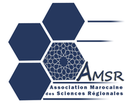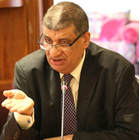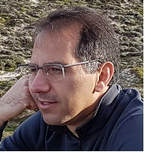|
The Moroccan Association of Regional Sciences (AMSR) and its partners in the organization of the second International Congress of AMSR invite scientists, economists, geographers, environmentalists, urban planners, land managers, decision-makers and researchers in similar disciplines to participate in this congress, whose unifying theme is "Ambition of Sustainability in the Context of Territorial Complexity and the Society of Risks". The Congress will be hosted by the National Institute for Urban Planning and Development (INAU), Rabat and will benefit from the support of the International Association of Regional Sciences (RSAI), the Academy of Regional Sciences (RSA) and the National School of Architecture (ENA), Rabat, Morocco. The profound changes affecting territorial dynamics and natural conditions seem to be accelerating today, in contrast with a past still marked by a certain stability. Our current world is made up of a constellation of multilayer networks ranging from local to global. It is a mutually interlaced and open space system. It is strongly influenced by population dynamics and global changes. Its evolution is in an open and systemic space economy increasingly determined by decisive megatrends. These trends are the result of forces that have a significant impact on territorial performance and regional absorption mechanisms to exploit the potential for innovation and creativity.
These changes influence territorial dynamics by affecting productive activities and the management of the environment. Territories of risks appear fundamentally unfair, depending on the ability or not to be able to move. With the various risks facing society, social vulnerability is increasingly important. Moreover, the future of socio-cultural changes: multi-territorial belonging, migration, increasing permeability between working time and leisure time, ... These transformations of society and lifestyles contribute to increasing uncertainty. All these elements interact, articulate and overlap to produce a kind of complexity that the territorial players have to face by mobilizing new methods and new ways of thinking and acting. The concept of sustainability, which now shapes development considerations in the context of the 2030 Sustainable Development Goals (MDGs) agenda, must be brought closer to an ecosystemic vision in a socio-ecological and spatio-temporal perspective. The questions raised by sustainability are essentially systemic because they are part of the territorial complexity of nature-society interactions. The regulation of these systems must integrate all the subsystems in their complexity: both vertical, according to the scales, and horizontal depending on landscapes, cities, regions, states, groups of states, continents, planet. Interactions, reflections of globalization, frontiers, sometimes conflicting, have become the lines of friction between these territorialized systems. New perceptions of reflection emerge, proposing amendments, specificities that a spatial approach to sustainable development could take into account. The dialectic between the territory, its actors and its projects calls for a territorial intelligence that concretizes the development of cooperation and a collective intelligence through participatory governance. The complexity sketched above of space systems has been influenced in recent years by large-scale technological developments. Information and communication technologies (ICTs) are deployed at all levels of the economic, cultural and social activities of territories and are placed at the heart of their development, with a view to consolidating the link between Citizens and institutions. To discuss these issues, the Moroccan Association of Regional Sciences (AMSR) and its partners organize the Second International Congress of the AMSR under the theme "Ambition of Sustainability in the Context of Territorial Complexity and the Society of Risks". The objective of this international scientific meeting is to give the floor to the specialists of various scientific disciplines to discuss the complexity of territorial dynamics in a perspective of integrated sustainable development. It is intended for academics, field actors and policy makers, and aims to advance reflection on a number of themes that will be addressed in order to clarify scientific research questions more than the development of sectoral strategies and territorial action plans.
Sessions themes:
|
|
A- Globalization and territorial intelligence
B - Resilience and Risk Management
|
C -Territorial Policy and Governance
D- Green economy and complexity of socio-ecosystems
|

Special Sessions
SS01 - Adapting to climate change through improved watershed management and payment for environmental services
Organiser: Abdellatif Khattabi
SS02 - Regional integration in Africa
Organiser: Abdellatif Khattabi
SS03 - Webmapping technologies for better knowledge management on territories
Organiser: Aniss MOUMEN
SS04 - Social innovation: Driving sustainable spatial development
Organiser: Fatima ARIB
Organiser: Abdellatif Khattabi
SS02 - Regional integration in Africa
Organiser: Abdellatif Khattabi
SS03 - Webmapping technologies for better knowledge management on territories
Organiser: Aniss MOUMEN
SS04 - Social innovation: Driving sustainable spatial development
Organiser: Fatima ARIB










